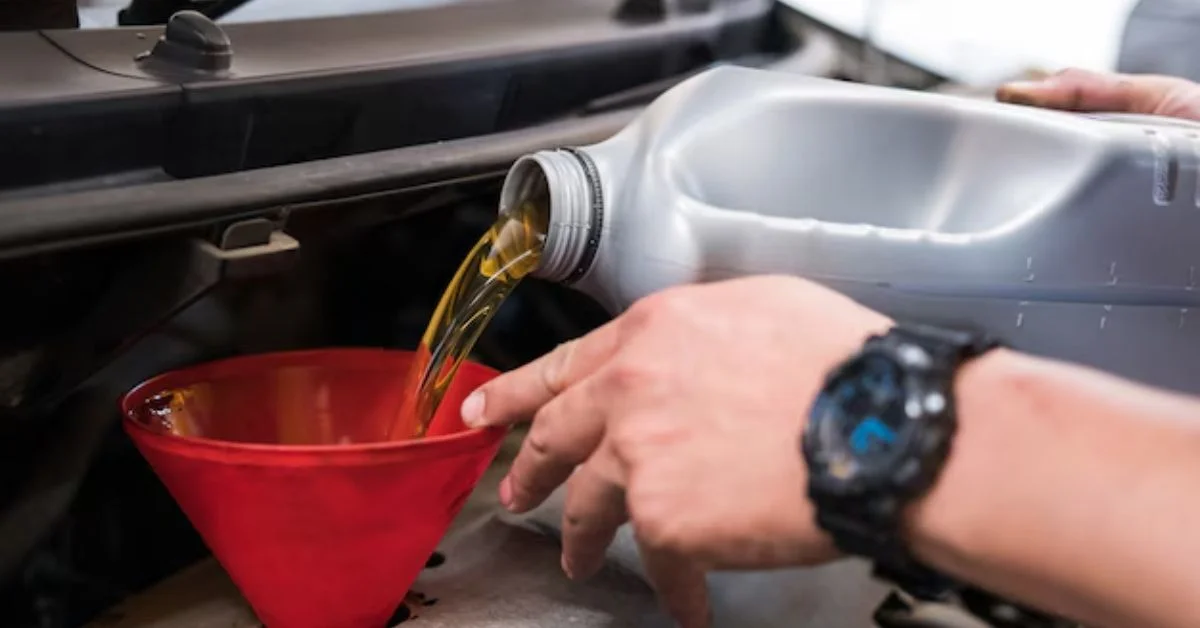When it comes to maintaining your vehicle, the oil pump plays a crucial role in ensuring everything runs smoothly. Most drivers may not think much about this essential component until something goes wrong. But understanding how to choose the right oil pump can save you from costly repairs and keep your engine running at peak performance.
With so many options available on the market, selecting an oil pump tailored to your specific needs might feel overwhelming. Fear not! This comprehensive guide will walk you through everything you need to know: from understanding lubricating systems and factors that affect oil pressure, to exploring different types of oil pumps suited for various engines.
Whether you’re a seasoned mechanic or a car enthusiast looking to enhance your knowledge, you’ll find valuable insights here. Let’s dive into the world of oil pumps and equip yourself with the information necessary for making informed decisions about one of your vehicle’s most vital components.
Choosing the Right Oil Pump
Choosing the right oil pump for your vehicle is a critical decision that can influence engine performance and longevity. Start by considering your vehicle’s make, model, and year. Each car has specific requirements based on its design and intended use.
Next, think about your driving habits. If you often drive in heavy traffic or under extreme conditions, an upgraded oil pump may be necessary to maintain optimal pressure. Performance-oriented vehicles typically benefit from high-flow pumps that ensure adequate lubrication during demanding situations.
Don’t overlook the type of engine you have—whether it’s naturally aspirated or turbocharged can impact which pump is best suited for your needs. Turbocharged engines usually require higher oil pressures due to their increased demands on lubrication.
Also, consider whether you’re opting for a stock replacement or a performance upgrade. Stock pumps are designed to meet standard specifications but might not provide enough flow for modified engines where extra power is required.
Always check compatibility with aftermarket parts if you’ve made modifications to your engine system. Choosing the wrong oil pump could lead to inadequate lubrication and ultimately damage vital components within the engine. Take time to research thoroughly before making this important purchase; it will pay off in the long run!
Understanding the Lubricating System
The lubricating system is vital for your vehicle’s engine health. It ensures that moving parts are properly coated with oil, reducing friction and wear. Without adequate lubrication, components can overheat and suffer irreversible damage.
Oil flows from the oil pump to different areas of the engine through a network of passages. This flow isn’t just about keeping things slippery; it also helps carry away heat generated by combustion processes. Maintaining an optimal temperature is crucial for performance and longevity.
Most vehicles use either a wet sump or dry sump lubrication system. Wet sumps store oil in a pan at the bottom of the engine, while dry sumps have separate reservoirs that allow for better distribution under high-performance conditions. Understanding which type your vehicle uses can influence how you choose your oil pump.
Oil viscosity plays a significant role in how effectively this system works too. Thicker oils provide more protection but may not flow as easily during cold starts, while thinner oils improve fuel efficiency but might offer less protection at high temperatures.
Regularly checking your oil levels and quality can help prevent costly repairs down the line. A worn-out or clogged filter can impede proper circulation, leading to potential issues with pressure and performance—factors critical when selecting an appropriate oil pump for your needs.
Factors Affecting Oil Pressure
Oil pressure is crucial for your engine’s performance and longevity. Several factors can influence the oil pressure, and understanding these elements helps in maintaining optimal engine health.
First, viscosity plays a significant role. The thickness of the oil affects how easily it flows through the engine’s components. Thicker oils may not circulate as freely at lower temperatures, resulting in lower oil pressure during startup. Choosing the right viscosity grade according to your vehicle’s specifications is essential.
Temperature also impacts oil pressure significantly. As an engine heats up, oil thins out, which can lead to decreased pressure levels if not managed correctly. High temperatures might cause overheating issues that further affect lubrication efficiency.
Another important factor is wear and tear on internal components like bearings and seals. Over time, parts may degrade or develop gaps that allow oil to escape rather than build up necessary pressure within the system. Regular inspections help catch these issues early on.
Any blockages or restrictions in the lubricating system can create problems too. Dirty filters or debris buildup can restrict flow, leading to lower oil pressure readings while increasing strain on your pump and overall system performance.
Exploring Different Oil Pump Systems
When it comes to oil pumps, there are various systems designed to cater to different engine needs. Understanding these options is essential for making an informed choice. The most common types include gear pumps, rotary vane pumps, and diaphragm pumps.
Gear pumps work by using two meshing gears that create a vacuum effect. This action draws oil into the pump and pushes it out under pressure. They are known for their reliability and efficiency but can be less effective at variable speeds.
Rotary vane pumps operate differently; they consist of vanes that slide in and out of a rotor as it spins. This design allows them to maintain consistent pressure across varying engine RPMs. They’re popular in many modern vehicles due to their versatility.
Diaphragm pumps use a flexible membrane instead of gears or vanes. As the diaphragm flexes, it creates suction that moves oil through the system. These are often found in high-performance applications where precise control over oil flow is necessary.
Choosing the right type depends on your vehicle’s specific requirements and intended use—be it everyday driving or racing scenarios. Each system has its own advantages, so understanding how they function will aid you greatly in making the best selection for your engine’s health.
Best Practices for High Performance Engines
When it comes to high-performance engines, selecting the right oil pump is crucial. It needs to deliver adequate oil flow and maintain pressure under extreme conditions. A heavy-duty or racing oil pump can provide that extra push, ensuring your engine remains lubricated even at high RPMs.
Regular maintenance plays a vital role in keeping these pumps functioning optimally. Change your engine oil frequently, as contaminants can cause wear on both the oil pump and internal components. Fresh, high-quality oil not only protects but also enhances performance.
Monitoring your vehicle’s temperature is essential for preventing overheating issues. An efficient cooling system works hand-in-hand with the lubrication system to keep temperatures down during intense driving sessions. An effective thermostat and radiator combination will support overall engine health.
Another best practice involves using an aftermarket pan that can accommodate larger volumes of oil. This allows for better heat dissipation and keeps the pump supplied with sufficient lubricant during aggressive maneuvers or rapid acceleration.
Don’t underestimate the importance of a solid filtration system. Investing in quality filters prevents debris from entering your engine’s lubrication network. Proper filtration contributes significantly to maintaining optimal performance levels while prolonging the life of all components involved in this intricate dance of engineering excellence.
Final Thoughts
When selecting the right oil pump for your vehicle, it’s crucial to consider multiple aspects. Understanding how the lubricating system operates will aid in making an informed choice. The pressure and flow of oil directly influence engine performance, so keep those factors at the forefront.
Different types of oil pumps exist—gear pumps, rotary vane pumps, and diaphragm pumps—each serving unique purposes. If you’re aiming for high performance or are involved in motorsports, you might want to explore specialized options that offer enhanced reliability and efficiency.
Regular maintenance checks can help ensure your oil pump is functioning correctly. Remember that even minor issues can escalate into major problems if left unaddressed.
Choosing the right oil pump is not just about replacement; it’s about enhancing your vehicle’s longevity and performance. By evaluating all these elements carefully, you’ll be better equipped to make a decision that benefits both you and your ride for years to come.









